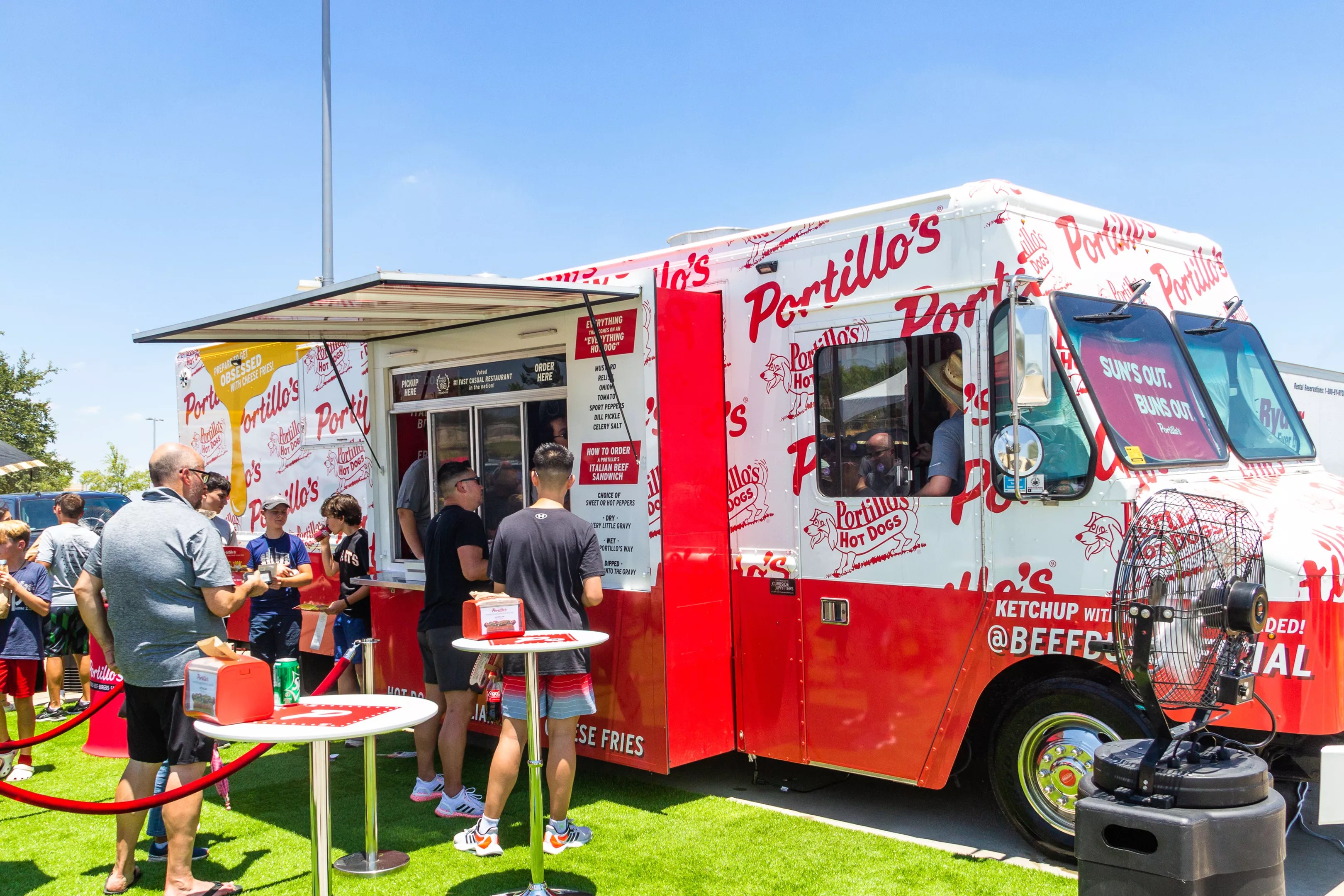
Hank Vaughn

Audio By Carbonatix
CORRECTION, Oct. 3: A previous version attributed a quote to a representative of Capriglione’s office, which was incorrect. Spencer Schumacher does not work in nor represent Capriglione’s office. He also didn’t provide a quote, but rather shared a part of the law as it is written. The story has been updated.
A law that went into effect Sept. 1 was intended to simplify the business of operating a food truck. But so far, it’s doing the opposite in Dallas.
Last legislative session, Rep. Giovanni Capriglione, a Republican from Southlake, introduced HB2878 as a bracket bill, meaning it was crafted to pertain to a specific area: in this case, Tarrant County. Or so most people thought. The law moves food truck oversight from cities to the county, creating a one-stop shop for all permits, regulations, fees, etc.
Threading the needle, Capriglione wrote the bill specifically for counties with a population of 2.1 million or more, with a public airport and a noncommercial airport owned by the principal city in that county. Which not only describes Tarrant County but also Dallas County.
Dallas County officials had to scramble in late August after realizing that they, too, were now in charge of mobile food truck operations. A website is already posted explaining the process along with a fee schedule that is very similar to the city of Dallas’. But now, some local food truck operators are being asked to have both city and county permits, doubling their fees. This also applies to ice cream trucks and push carts.
Maria Aguilar is with United Caterers, which has a fleet of more than 50 food trucks that travel to construction job sites and factories around North Texas
“The city fee is $185, but the new county fee is $1,287,” Aguilar says, which includes the first-time inspection fee that is usually higher. Aguilar says her company renewed many truck permits over the summer, unaware that the new law was taking effect. Dallas County is allowing a six-month grace period for trucks to get inspected and permitted, but the city of Dallas continues to demand yearly renewal fees.
“The county of Dallas is going to give us a six-month period to do their permits,” Aguilar says. “City of Dallas should let us finish up the year. We personally got several permits renewed back in June, July, and they didn’t tell us that the laws were going to change and we should have waited: city of Garland did, city of Grand Prairie did, city of Carrollton did.”
Moving forward Aguilar says her company shouldn’t have to pay for the annual city of Dallas permits because it will also have the county permits to pay for. The city tells her otherwise.
“Now the city of Dallas is telling us that we also have to get their permit through them,” says says. “According to the supervisor of the health department, their lawyers reviewed the law and they’re entitled to get a permit and make us get a permit.”
Multiple calls and messages to the city of Dallas went unanswered. The city’s website still has information and applications for a city permit.
The county can’t provide any clarification either. Its website even contradicts itself. One paragraph reads:
House Bill #2878 was passed by the Texas State Legislature and is effective on September 1, 2023. MFU [mobile food unit] operators will no longer be required to be permitted in each individual city within Dallas County.
Immediately below that it states:
A MFU permit issued by Dallas County does not exempt MFUs from local municipal laws. All MFUs must comply with any applicable municipal zoning, parking, and/or other ordinances.
We can’t get clarification on whether “local municipal laws” include city permits. An official with the county says it does include fire department permits, which is another food truck regulation. Aguilar says it’s math.
“I think the problem is they [the city of Dallas] don’t want to lose their revenue that we’re bringing to them by getting our permits,” Aguilar says.
Calls to several other food truck operators revealed that some don’t know about the new county oversight. Others, however, are aware of the new overlap but didn’t want to comment for fear of retribution from inspectors.
The language in HB2878 is clear: a municipality cannot require a permit if a county already has. Spencer Schumacher, a caucus director for which Rep. Capriglione chairs, sent Aguilar the verbiage from the bill: “A permit issued by a county under this chapter must authorize a mobile food service establishment to operate in any municipality located in the county.”
Ryan Ngyuen operates the food truck Sushi Dojo in both Tarrant and Dallas counties. He loves the new setup in Tarrant County allowing for a one-stop permit shopping for all cities. He didn’t know that Dallas, too, was moving to county oversight but hopes they too will streamline.
“Ideally, in a perfect world, it would be at least county by county,” Nguyen says. “If you got your Tarrant County permit, your Dallas permit, your Denton County permit, I mean, you could go literally anywhere in the metroplex, but it’s just not like that.”
The costs for all the city permits plus events, gas, food, not to mention operating in 100-plus degree weather for the past few months provide enough challenges to the operation of a food truck.
“And then you got to worry about getting all the inspections. You got to book all your events, you got to do all that stuff. So, it’s a tough lifestyle,” Nguyen says.
And the city isn’t making it any easier.